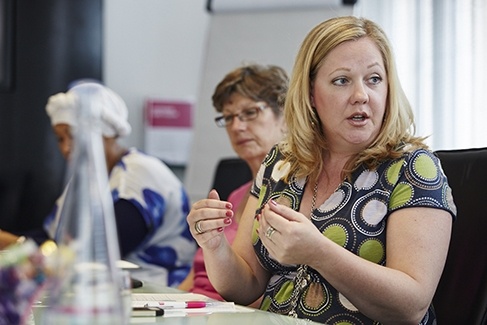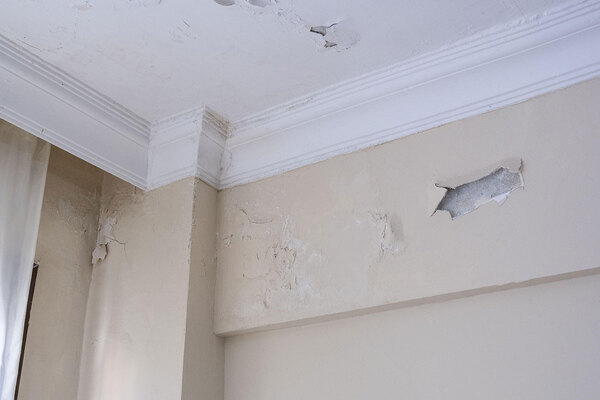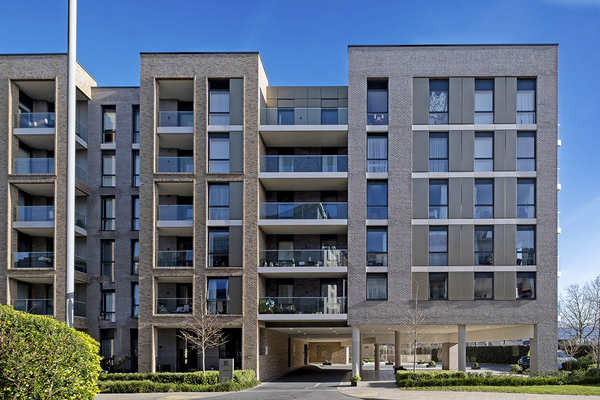You are viewing 1 of your 1 free articles
Merger fever: the tenants' view
Tenants are helping to devise an alternative merger code. Carl Brown finds out why
Video:
features style

Social landlords have used all kinds of reasons to explain their sudden enthusiasm for mergers. They have promised “greater economies of scale”, “operational efficiencies”, “extra development capacity” and “millions of pounds of savings” as a result of their unions.
Video:
Ad slot
In the context of the 1% annual social housing rent cut, pressure on the sector from ministers to be more efficient, and market volatility following the Brexit vote, mergers are increasingly being considered by landlords.
However, there is a growing feeling from some in the sector that one important group is being overlooked – tenants.

Leslie Channon (right): “There is going to be a point where there is no more affordable land.”
A voluntary merger code drawn up by the National Housing Federation and published last December does not mention tenants at all. The code is designed to ensure associations are seen to be taking merger approaches seriously.
Excluded voice
This omission of tenants, along with a feeling that the code favours predatory organisations, has prompted a group of 12 landlords to undertake a project to come up with an alternative code – with tenant engagement at its heart.
The dozen organisations involved are, along with tenant engagement body Tpas, holding discussion groups with tenants about how they can get involved with mergers.
All of this is intended to generate ideas to feed into the alternative code, a draft of which is being drawn up by Housing Quality Network (HQN) and is expected to be published for consultation at the end of September.

Leyla Cabdalla: “The finances would be a bit stronger, so we could build a lot more.”
As part of this project, on a hot summer’s day, Inside Housing attends a tenant roundtable in the relative cool of a small room in the heart of Westminster.
Six tenants from five housing associations are in attendance: Hyde, Soha Housing, Red Kite Community Housing, Raven Housing Trust and Cottsway Housing. Jenny Topham, chief executive of Tpas, is present as an observer, while the session is chaired by Abigail Davies, formerly assistant director of policy and practice at the Chartered Institute of Housing and now a self-employed consultant.
We kick off by talking about the tenants’ general feeling about mergers. Don Harrison, a tenant board member at 6,000-home Soha and retired banker, is critical of what he feels was an emphasis on the commercial benefit of the until-recently proposed 135,000-home tie-up between L&Q, Hyde and East Thames. “There was nothing in the [news] articles that mentioned tenants,” he says. “There were very good business reasons for it, but nothing about tenants.” L&Q and East Thames have stressed, however, that tenants have been involved.
Mr Harrison doubts the value of mergers. “We [Soha] can’t see any value in merging with anyone. We consider ourselves to be effective, financially viable and our key performance indicators show that’s what all our tenants think as well.”

Don Harrison: “There was nothing in the [news] articles that mentioned tenants.”
But Mr Harrison’s scepticism is not matched by other tenants in the room, who can see advantages, including building homes to benefit future, as well as current, tenants.
Leyla Cabdalla, a tenant of Raven Housing Trust, which had considered a merger before its unnamed partner pulled out, says: “The positives are we would be a large organisation. The finances would be a bit stronger, so we could build a lot more than we can at the moment.”
Jan Durbridge, a tenant of Hyde Group, says tenants should understand the financial drivers for an organisation looking to merge. She says: “I think it is important for residents to know there are two sides to this. It is not just about your repairs: it’s thinking about why a company has to go down [that] route.”
She adds that larger, merged organisations could have more influence over government policy. “If you are bigger the government will come to you. You have much more of a voice.”

Jan Durbridge (left): “It is important for residents to know there are two sides to this.”
Pragmatism
Another reason to engage is pragmatism. Leslie Channon, one of the more vocal in the group and a tenant at Cottsway Housing, believes some organisations may be forced into merging if they are not using their assets to build. She says: “There is going to be a point where there is no more affordable land and you are not demonstrating to the HCA [Homes and Communities Agency] that you are building enough to fulfil your social purpose.”
It is early days, but the project is already showing that many tenants respond positively to discussions about mergers. The HQN’s online survey found only four in 10 tenants think associations are better off on their own. It is important to point out, however, that the sample is, at 319 responses, very small and has not been weighted to be representative.
So what fears do tenants have about mergers?
Perhaps the biggest concern is that their organisation will be taken over by an association which does not share its values, particularly on tenant engagement. Ms Channon says tenants will want to know “which culture is going to win out” if an organisation without much tenant involvement merges with one that has traditionally been more engaged.
There are also concerns mergers could lead to a less localised organisation with less responsive services. Mr Harrison says: “We don’t see any value in becoming part of a vast organisation where you may have to phone someone at the other end of the country.”
Furthermore, some organisations have stronger mechanisms to ensure accountability to tenants than others.
Nasreen Razaq, another Soha tenant, says, having attended seminars around the country, she has been “shocked” at the lack of tenant engagement. Mr Harrison tells the story of a tenant of another association, with weaker tenant engagement, praising their landlord for doing a repair within three months of it being reported. He says: “If it was any more than 12 days [at Soha] we would be kicking the arses of the contractors.”

Nasren Razaq: “Shocked” by lack of tenant engagement
So why are some landlords not engaging to the extent these tenants would like?
Again and again, the point is made that a culture of tenant involvement needs to come from the chief executive; the tenants speculate that some CEOs fear tenant involvement will slow things down too much, particularly if they are perceived as automatically hostile to merger plans.
Trusting tenants
Several of the roundtable attendees also stress the importance of tenants being trusted to be involved in merger plans from an early stage – rather than being consulted on when a plan has been all but finalised. Ms Cabdalla says the chief executive of her organisation talked to tenants about a potential merger before staff were informed, and were trusted to abide by a commercial confidentiality agreement.
A lack of regulatory pressure on landlords is also a concern. The Housing and Planning Act will remove the need for landlords to obtain consent for mergers from the HCA. Ms Davies says this will mean the HCA’s “cursory check” that tenants have been consulted will no longer apply.
The tenants talk about the need to demonstrate to landlords that involving them makes good business sense. Ms Channon says tenants can provide information to landlords about where they are over or under-delivering services so they can spend money more effectively. She adds: “If you have high customer satisfaction it makes business sense because you are spending less time dealing with complaints.” The conversation focuses on the need for better data and information to convince executives and boards that tenant involvement makes business sense.
Although the conversation does not move on to specific measures to include in the alternative merger code, some very clear themes emerge. These tenants are concerned that residents could be sidelined as the sector embarks on an unprecedented number of mergers.
Their message is that tenant involvement and engagement is not only the right thing to do, but can save landlords money and lead to better decisions. They want to get the message out that tenants will engage with merger proposals constructively rather than simply hold up discussions.
Whatever the eventual shape of the alternative code, tenants will be hoping that in a world of reduced regulation and greater financial and political pressure to merge, they will not be left out of the discussion.
LANDLORDS PUBLICLY BACKING THE ALTERNATIVE CODE
- Bolton At Home
- Community Gateway Association
- Freebridge Community Housing
- Havebury Housing Partnership
- Progress Housing Group
- Red Kite Community Housing
- Soha Housing
- South Yorkshire Housing Association
- Wythenshawe Community Housing Group














